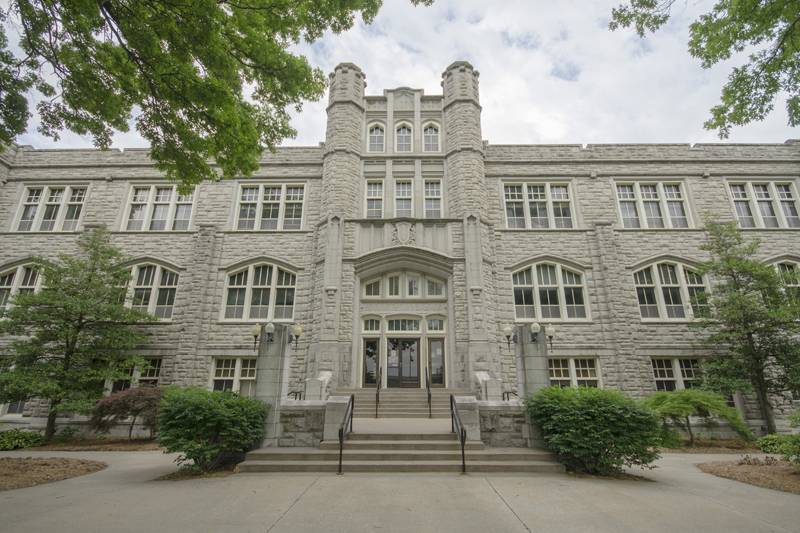By Jeff Murphy,
October 5, 2018

WARRENSBURG, MO – Validating the University of Central Missouri’s efforts to increase
retention and help more students cross the degree finish line, the university is receiving
a $2.7 million federal grant to aid in developing its student success continuum over
a five-year period.
The U.S. Department of Education Strengthening Institutions (SIP) Grant is made possible under the Title III program.
The SIP helps eligible institutions become self-sufficient and expand their capacity
to serve low-income students by providing funds to improve and strengthen the institution’s
academic quality, institutional management, and fiscal stability. Grants are awarded
through a competitive application and review process. Grant funds provide benefits
for all students, but particularly enhance the university’s ability to better assist
students who are first-generation, Pell eligible, low-income and racial/ethnic minorities
to stay on a path to graduation.
Titled Achieving Student Success: Academic and Social Supports for Improving Retention
and Completion, this research (F) grant became effective Oct. 1. The university is
receiving $551,381 for the first year to develop and continue building upon new initiatives
in the area of student retention and completion.
Karen Goos, interim vice provost for enrollment management, serves as the Project
Director, and submitted the application for Title III funding. She worked closely
with Mike Godard, interim provost-chief learning officer, throughout two application
submissions over the past 18 months. UCM was notified on Sept. 28 that its bid for
the F grant was approved.
“This is something we discussed when we were in prior roles at the university,” Godard
said. “We felt very strongly about this, knowing that if we had funding we might be
able to do something special to strengthen student success on campus.”
Godard pointed out that development of the student success continuum took a major
step forward this summer and included the restructuring of the academic advising area,
which moved from being clustered throughout campus to a more centralized location
as part of the new Success Advising Center. Opening on the lower level of the Elliott Student Union in September, this facility
provides a one-stop, intentional and holistic approach to ensuring students get information
and assistance at the right time to help them succeed in their college education.
The grant comes at a time when the university is ramping up its efforts to enhance
student retention, which is now about 70 percent for first-time, full-time freshmen.
The goal is to increase that to 80 percent over the next five years, Goos said.
She noted that the grant allows UCM “to build on the momentum that we already have
through restructuring. Now we can provide tools and resources to our faculty and staff
to make sure they have training and professional development to really implement this
at the top level so we can start to see successes for students.”
She cited the overall project includes two primary objectives. The first is strengthening
academic advising and educational support services to help students achieve their
educational goals.
“The second goal is to create an integrative and comprehensive onboarding and first-year
experience program,” Goos said. “This is something that we have some components of
already, but we are bringing them together in an integrative way that will really
move the needle forward for us in student retention and success.”
She noted that funding the first year of the grant includes the hiring of a new director
to oversee the first-year experience program; development of a pilot first-year curriculum;
and redesigning the first-year curriculum. The university also will begin to develop
a Summer Bridge program to serve students who are at-risk.
The university will look at how co-curricular activities, support services and curriculum
development can most effectively be integrated to help students move through their
first year of school successfully. In subsequent years of the grant, the university
will continue to build upon initiatives taken in the first year, while also collecting
data and documenting successes in meeting grant objectives.
“It is a research grant, so you evaluate your success,” Goos said. “Then you scale
those things that work or try different activities. The goal is to strengthen the
overall institution, so by the end of the first year those successful practices have
been institutionalized. They become the fabric of the university so that those ideas
and that training permeates throughout campus so that all students can utilize these
best practices.”
Godard added, “This is going to provide us with the financial and infrastructure resources
that are really necessary to get us to a point where - within a five year period of
time - we will become a model related to how to ensure students remain in the success
continuum to become completers.”
He and Goos hope to share with peer institutions results of research gathered during
the grant. Godard also plans to provide some details about the grant when he speaks
at the grand opening of the Success Advising Center planned for 10 a.m. Wednesday,
Oct. 10. That event is open to anyone who is interested in attending.